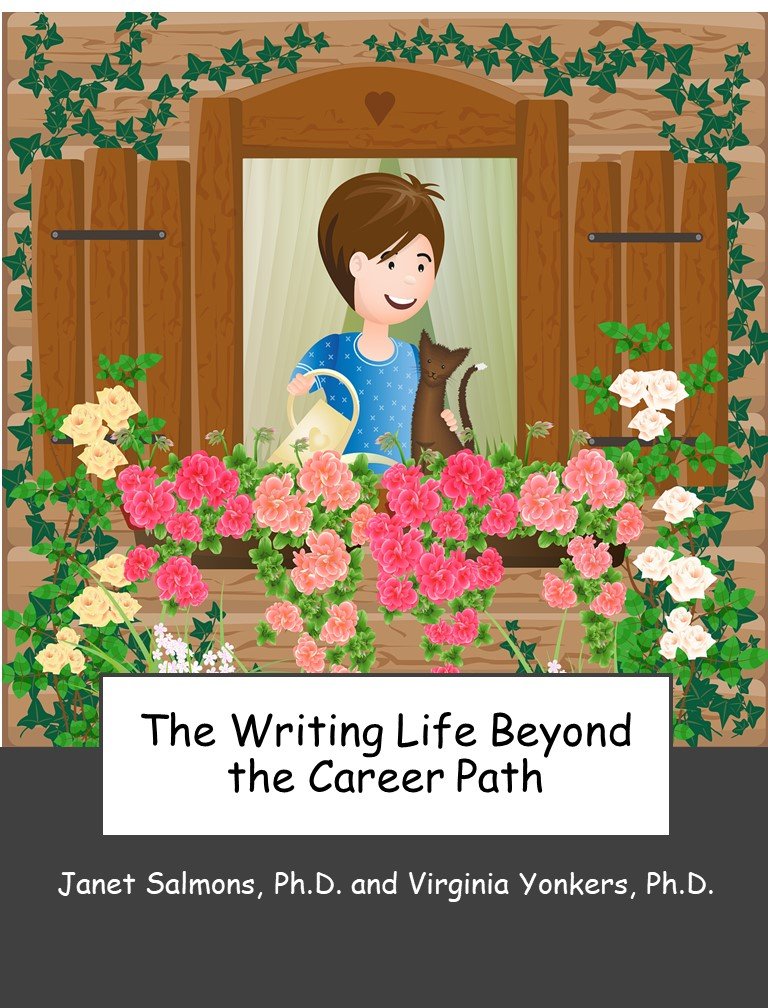No Bad News: How Anyone Can Create an Easy, Effective Writing Group
By Michelle Boyd
Dr. Boyd was a panelist for the webinar, How Academic Writing Coaches Get Unstuck. In this post she responds to a question posed by an attendee: “How do you find a writing group? I love the idea but am unsure how to get started!”
She is the author of the new book Becoming the Writer You Already Are. Use the code MSPACEQ422 for a 20% discount on SAGE research methods books, valid until December 31, 2022. Learn more about Michelle on her website, InkWell Academic Writing Retreats.
I’m always grateful when someone else writes a piece that expresses exactly what I think. Sure, it’s nice to find that someone agrees with me—but the real boon is that I don’t have to spend the time to work the ideas out myself.
That’s how I felt a few weeks ago, when I posted Louise Seamster’s ChronicleVitae article on writing groups on InkWell’s Facebook page. Writing groups, Seamster insists, don’t just increase writing productivity: they’re also “automatically subversive—a parallel universe [that] offers a place to find support and mutual collaboration, and can help you take control of your own destiny and define success for yourself.”
Dr. Michelle Boyd
Seamster goes on to show that writing groups can take many forms and still be effective. Hers was first a weekly, in-person Read & Comment group, then it moved online, becoming a biweekly Methods Support group. Finally, the group grew in size and worked through two popular writing support programs, one in book form and another online. Your writing group doesn’t have to look the same all the time, she was telling us. It can change as you do, and according to your needs.
I was diggin’ that post, feeling pretty pleased to have found it…until I saw an online comment from a reader. “This is easy to say,” she pointed out briskly, “when people are willing to work with you and if their work aligns with yours. I’m too interdisciplinary and I’m trapped in Nebraska. I also work full-time while dissertating and I’m a mom. So, in an ideal world, a writing group is great. For me, it’s nearly impossible.”
I didn’t know this woman, but after reading her reply, I started forming this mental image in my head. The image represented her, sure, but really, it stood for all the scholars I encounter who are struggling to handle a never-ending rotation of roles and responsibilities, usually without adequate support. This scholar’s got a baby in the crook of one arm, a bag of groceries in her hand, and a backpack full of unfinished reading slung over her shoulder. The strain shows up mostly around the eyes, which are finely lined from fatigue, but focused, as she fishes through her belongings trying to find the keys to let her in the door.
But of every thing about her I imagined, the part I saw most clearly was her jaw. Tightly clenched, while she tried to maintain her patience with all these fools insisting she squeeze yet another commitment into her already packed day. Don’t give me one more thing to do that jaw says, as it flexes back and forth. Give me a tool I can use.*
That reader had a point. Um, she had several, actually. In order to have writing groups that give you substantive feedback, you have to have some understanding of one another’s field. OK, yeah, it helps to have the occasional non-expert read your work—but for regular methods and checks and manuscript development? You can’t always be struggling with folks who don’t understand or respect the fundamental assumptions of your field(s).
In addition, you do have to have some time available for this group if it’s going to work, and your participation has to be consistent. But with three full time jobs (baby, paid labor, and dissertation), where is that time going to come from?
I don’t say this to fault Seamster’s piece—she actually does a fantastic job of showing us that writing groups can and should change to meet your needs. But the reader was struggling with a combination of constraints that is particularly difficult and made it hard to see how Seamster’s solution could work for her: she’s interdisciplinary, intellectually isolated, and time-strapped. Under those conditions, visions of finding your scholarly voice while wrapped in the loving embrace of your colleagues? Well, they tend to fall flat.
Even if your situation isn’t this knotty, the fact is that writing groups take time and energy: someone has to organize them, everyone has to show up for them, and usually someone needs to do a bit of steering to keep them on schedule and on course. Sometimes they fall apart. Sometimes its participants are weighed down by other obligations. How can you make a writing group work, when everything in your life is making it nearly impossible to maintain?
Enter the No Bad News Writing Group. Here’s how it works:
Find at least one other scholar who you like, respect, and find to be reasonably kind-hearted (yes, I know, seems tricky, but it’s possible, just stick with me).
Write and exchange no fewer than 2 and no more than 4 double spaced, shitty first draft pages each week.
Read these pages and when you find something that seems worthwhile and interesting… put an exclamation point in the margin next to it, and keep reading.
Return the pages to your group member and get back to work.
What I love about No Bad News Writing Groups is that they’re easy, effective, and anyone can do them. Their purpose is to give you just two things—accountability and encouragement—as quickly and painlessly as possible.
They’re easy, both in their set up and maintenance, cause they don’t require a lot of people, or a lot from those people. In fact, the fewer people they have the better, cause that’s fewer pages for you to read or get back from others. The most complicated thing that can happen when you’re reading is deciding how many exclamation points to use. If you think something’s interesting and want to hear more, give it one. Believe this is a crucial point that needs further elaboration? Use two. If you see something that’s gonna break the field wide open, well, that’s when you whip out a third exclamation point and call it a day. No comments. No questions. No requests for clarification as you try to figure out what the hell the person was trying to say. Just unrelenting support for what works, so that both you and your reader can find the hope and motivation to keep writing.
The whole point of this kind of writing group is to encourage you to write and share your work, and to do so before you think it’s ready. That’s why they’re called No Bad News (in honor of Evileen, the Wicked Witch of the West from The Wiz). There are enough voices telling us our work’s no good, and we’ll never finish, so we might as well not bother trying. No Bad News groups get you in the habit of writing something, anything, no matter how crappy it is, instead of getting hung up on its imperfections.
In addition to being easy, these groups are also quite effective, because they efficiently act as a form of accountability—at the very least, you’re going to get these 2-4 pages done. Weekly hour long meetings? Nope! Keeping your own writing panic at bay while listening to your group member’s writing angst? Naw, kid. Just write those pages, send them off, and wait for your exclamation points to tell you where ya done good.
You want to know the weirdest part? I found out about these groups from a former client, who I just happened to be meeting with the day I read that reader’s comment. Hooo boy!, how I’d love to take credit for this one. But the fact is, my client found herself in almost the exact same situation as Lissette had—the only woman of color in a department full of people who misunderstood and maligned her work and a new mom to boot—so she was the one who had the insight about what might work best in that situation. It was our final meeting, so we were reviewing her coaching accomplishments and discussing the forms of support she’d use to help her maintain what she’d learned. When she mentioned her writing group, that time-strapped academic reappeared in my mind, and her jaw—it wasn’t clenched any more.
I’m not saying that one group can fit all needs. I also have a writing buddy who gives me tough love when I’m flagging and an editor who cuts the fat and flaws when I’m finished. But you can create connections with people that give you accountability, feedback, and encouragement. And doing so isn’t always time-consuming or difficult. Sometimes the support you need comes easily. In unexpected form. At the time and place where you least expect it.



























Michelle Boyd answers a question about taking small steps to make progress on a large writing project.